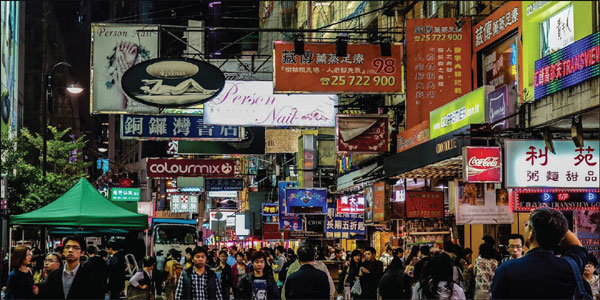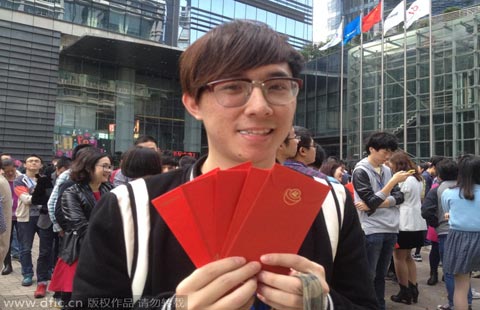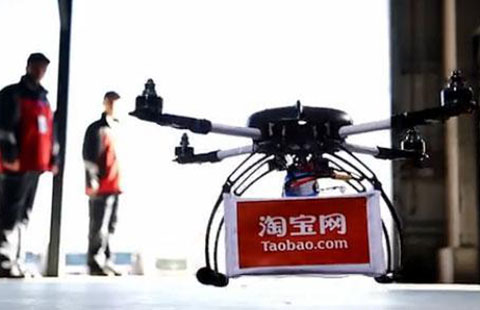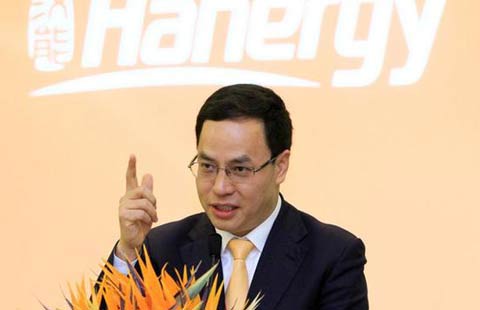Jump-starter goes to town
Updated: 2015-02-20 16:02
By Selena Li(China Daily HK Edition)
|
|||||||||
 |
|
While there may be fears in some quarters that rising costs of commercial space may drive business away, it is an indisputable fact that Hong Kong offers a range of different options at very different prices within a small area. Provided to China Daily |
"One of the reasons we do the venture program is to reach out to some of the wealthy individuals," Galpin said.
"Understandably many family offices - not just mainland but foreign or Hong Kong family offices - like to be quite low profile, they don't want to be bothered by anybody trying to sell them an investment opportunity. So it takes a bit of a time to build up trust with some of these key individuals.
InvestHK organized the 2014 StartmeupHK Venture Programme, the world's second-largest startup contest, which saw 550 entries filed from 47 economies, compared to 384 entries from 39 economies in 2013.
The department aims to at least double the size and scale of the next startup venture program next January.
"Looking forward, we think Hong Kong is at a kind of tipping point. And with a little bit more promotion, a little bit more push, we can really position Hong Kong as not just one of the fast-growing startups communities, but one of the more influential ones."
Location, location, location
One added benefit Hong Kong enjoys is that it is home to more than 3,500 regional headquarters and regional offices, Galpin said.
But mainland megacities are not too far behind, it would appear. The capital's Chaoyang district is shaping up to be the next Central as the wave of headquarters economy sweeps across megacities like Beijing, Shanghai and Guangzhou.
Galpin agrees that there is no doubt the number of big multinationals choosing to have offices in Beijing and Shanghai will continue to grow.
But a geographical edge and a closer link with global leading financial centers like London and New York helps Hong Kong earn a slightly higher score, he added.
He also pointed out that another notable rival in the region, Singapore, a state that "shares many of the strengths of Hong Kong - its low tax economy, low rates of corruption, its rule of law", is among competitors keeping Hong Kong on its toes.
"Singapore is really is a good staging point for Indonesia and some of the Southeast Asian economies. But it's quite a long way away from Beijing, from Tokyo, from Seoul. So for companies that want to have a single base to cover both north and Southeast Asia, Hong Kong has a bit of geographical advantage."
"I think Hong Kong will be less important as simply a place to manage operations in China but more important for managing global connections and global operations, " Galpin said.
Four years ago, US conglomerate General Electric Co set up its global growth and operations headquarters in Hong Kong, to manage offices in Asia, Europe and Africa.
And Infiniti, the premium brand of Japanese auto maker Nissan, relocated its global headquarters from Japan to Hong Kong in 2012, spurred by anticipations of further growth in luxury demand on the Chinese mainland.
"And even big companies from Europe like Schneider Electric have taken advantage of Hong Kong's global reach," Galpin said.
An annual survey by the Census and Statistics Department shows that the total number of firms with parent companies overseas and in the mainland reached 7,585 in the past year, up by 1.8 percent over 2013.
And more than a fifth of the 3,784 companies that serve as regional headquarters or offices in the SAR were confident about their prospects and indicated that they may expand their business in Hong Kong over the next three years.
Contact the writer at selena@chinadailyhk.com

 Chengdu citizens visit Du Fu Thatched Cottage to mark Human Day
Chengdu citizens visit Du Fu Thatched Cottage to mark Human Day
 Tencent gifts red envelopes to employees
Tencent gifts red envelopes to employees Throwing coins to please God of Wealth
Throwing coins to please God of Wealth
 7 companies that aim to fly high with drone deliveries
7 companies that aim to fly high with drone deliveries
 Starry Night created by lens
Starry Night created by lens
 Dragons, martial arts and basketball
Dragons, martial arts and basketball
 Stringing in the New Year
Stringing in the New Year
 Top 10 Chinese innovators in 2014
Top 10 Chinese innovators in 2014
Most Viewed
Editor's Picks

|

|

|

|

|

|
Today's Top News
Obama blames immigration woes on Republicans
New fighter jet ready for PLA
Why China's youth is getting the needle
Most Chinese forced to return home were living abroad illegally
US State Dept calls for cyber security boost
Anbang buys new piece of Manhattan
California here we come: Chinese
Port dispute over, shelves take time to restock
US Weekly

|

|








